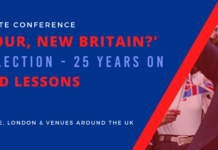By Neil Stewart, Editorial Director, City View
Brexit means Brexit has been the government default statement for almost a year. For most of that time prudent business leaders have kept quiet and conducted due diligence on their own options.
Adam Donoghue of Maples, a London based legal adviser on Brexit summarises the comparisons companies are making in a Brexit Resilience programme after Article 50 was moved.
Adam Donoghue, Maples and Calder – Ireland’s Regulatory & Legal Environment (Ep.03) from Policy Review on Vimeo.
Back in January the Prime Minister raised the stakes in a speech which defined a “hard Brexit” that excluded the “single market” as an option. This quickly led many companies to look at creating operations and legal domiciles in other European centres – creating awkward headlines and staff discomfort for companies like JP Morgan who were linked to Ireland. Personnel directors report that uncertainty is already impacting on recruitment and retention,
Bad headlines drove businesses back into their shell. However Xavier Rolet, Chairman of the Stock Exchange said in the same month, followed by Mark Carney, the Governor of the Bank of England in April, that UK listed and regulated businesses would need to start publishing or reporting their Brexit impact calculations. All seemed straightforward until 11am on April 18th when Mrs May announced a general election on 8th June. An election that looks like being dominated by Brexit.
Business leaders were largely silent during the 2016 referendum. The impact of Brexit looks deeper and more complicated than many anticipated. It reaches into businesses far beyond the City and the Financial services that grab the headlines. What should business leaders do in the coming weeks? The default business position will be to remain silent but that may not be easy this time as duties to report to regulators or publish to shareholders are triggered by Article 50 , plus the sheer weight of demand for information from customers, suppliers and staff.
Staff and shareholders have spent a year learning just how much business they do with Europe, how many EU rules and licences they depend upon, and how many of their colleagues are from Europe, and its revealing that many find it is greater than they thought. A swathe of trade sector and trade association leaders from agriculture to Engineering to hospitality have all called for support or continued funding. A busy time lies ahead for communications directors and their public relations advisers on what to do. And this time it will be harder to plead lack of information. Businesses will face real pressure for a clarification by staff, shareholders and customers.




